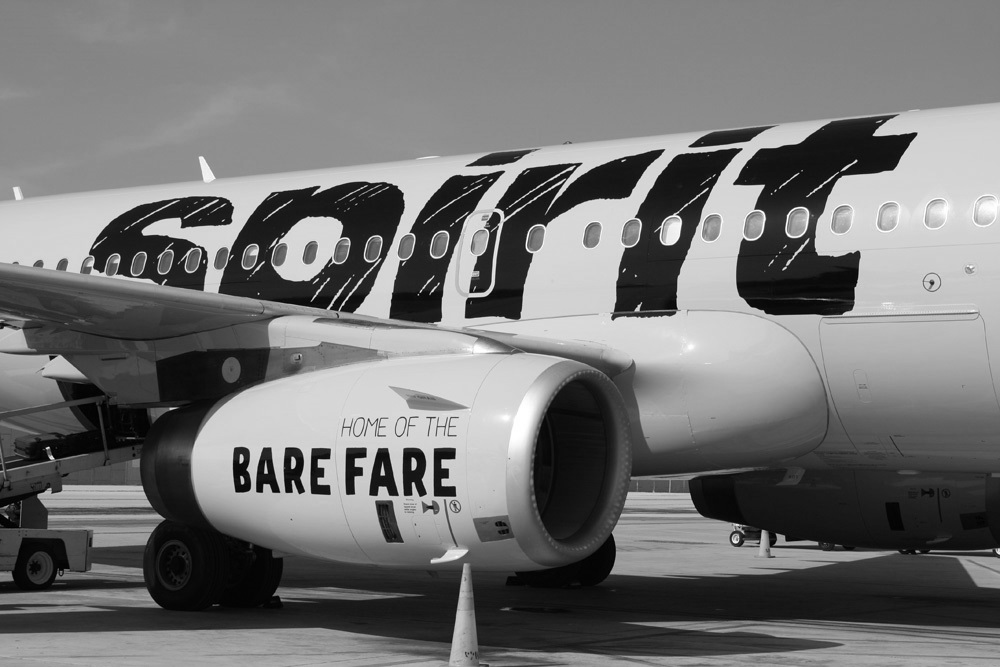Bare fares—cheap coach fares with few perks and plenty of restrictions—are a thing. The unbundled fares, as they’re also called, are what have made Spirit, Frontier, and other ultra-low-cost carriers the darlings of the most price-sensitive customers, and of Wall Street. And the legacy carriers can’t afford not to compete for those flyers.
When American announced, in late 2015, that it would roll out its own bare fares, the airline noted that air travel is increasingly viewed as a commodity, with price playing a leading role in the purchase decisions of fully half the airline’s customers. As explained by Scott Kirby, then American’s president and now United’s, “87 percent of the people who have flown American in the past year flew us only one time… And they represent over 50 percent of our revenue. For many of those customers, air travel is a commodity. With 50 percent of our customers up for grabs, we have to compete for them. We can’t just walk away from that size of a business.”
Shortly after American’s announcement, United promised that it too would soon be offering unbundled fares, for the same reasons cited by American.
At that point, almost two years ago, Delta had already introduced its version of bare fares, Basic Economy, in selected markets, and it has since expanded their availability to many domestic markets. The expectation, therefore, was that American and United’s cheapo fares would be brought to market sooner rather than later, probably in the first quarter of 2016.
Better Late than Never?
Here we are in the fourth quarter of 2016, and still no bare fares from either American or United. What gives?
American, in this week’s quarterly earning call with analysts, provided some clarity on both the delay and the new timing of the fares introduction. As reported by USA Today, American was on track to roll out bare fares in late 2016, but decided to wait until after the holidays. So the new target date: January 2017.
United, meanwhile, has delayed a planned October launch by “several months,” according to Skift, which would put its bare fares in circulation early in 2017 as well.
So, by the end of the first quarter of 2017, the Big 3 should all have their versions of bare fares available for sale. If that’s a blessing, it may be a mixed one.
Sure, cheaper fares trump more expensive ones, all things being equal. But with bare fares, all things aren’t equal, by definition. Depending on how they’re structured, they’re stripped of such niceties as seat selection, boarding priority, the ability to change flights or receive a refund, upgrades, frequent flyer miles, and so on.
And then there’s the more general concern, that the trend portends a race to the bottom, or at least a hollowing-out of the great middle. No company can be all things to all customers. Catering to the most price-conscious segment of the market necessarily diverts resources away from other customers. And since the airlines can’t afford to disenfranchise the high-profit travelers in business and first class, the likely losers will be coach-class travelers who traditionally buy discounted economy tickets. In other words, the great majority of flyers.
Cheap comes at a price.
Reader Reality Check
Do you trust the airlines to make bare fares a winning value proposition for consumers?
After 20 years working in the travel industry, and almost that long writing about it, Tim Winship knows a thing or two about travel. Follow him on Twitter @twinship.
This article first appeared on SmarterTravel.com, where Tim is Editor-at-Large.


Leave a Reply